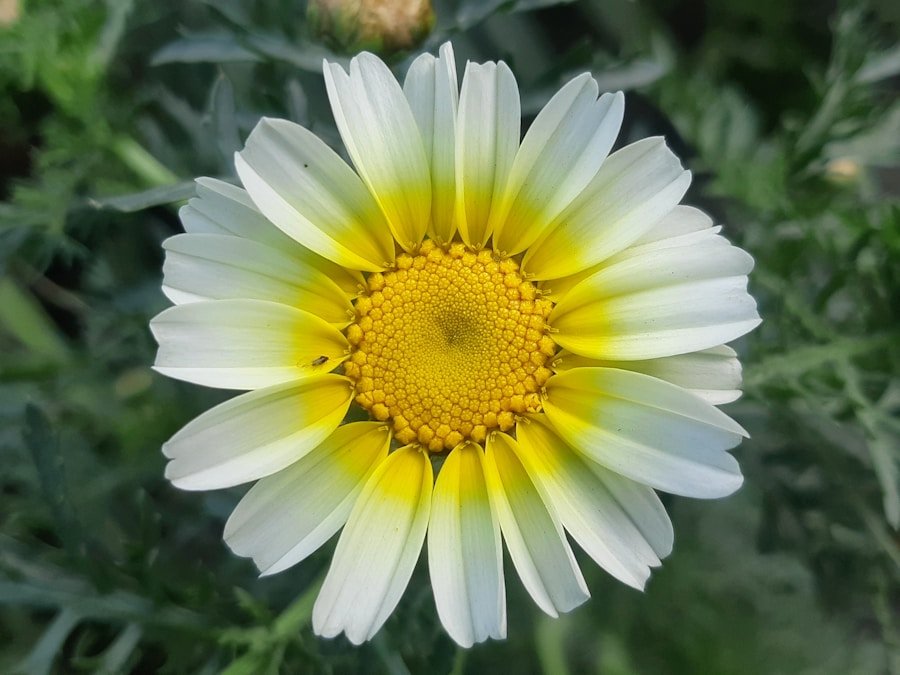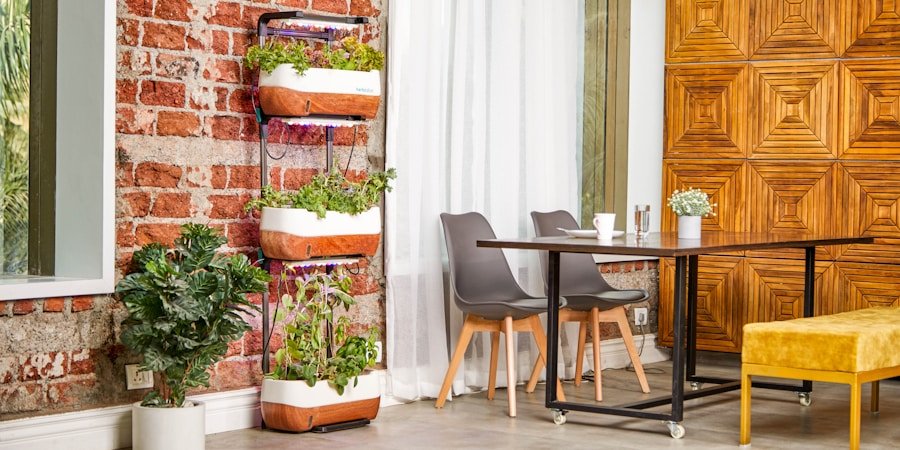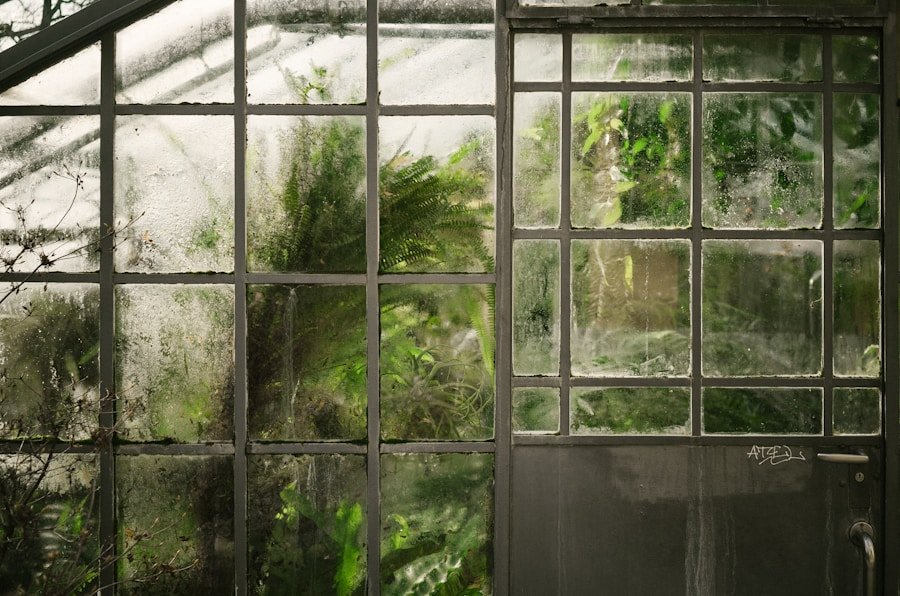Indoor plants can have a profound impact on your baby’s health and well-being. Beyond their aesthetic appeal, they provide a range of benefits that can positively influence your baby’s development. Scientific research has demonstrated that indoor plants can help alleviate stress, anxiety, and depression, which can be particularly beneficial for babies experiencing discomfort or unease.
Moreover, indoor plants can improve air quality, which is crucial for the healthy development of your baby’s respiratory system. The presence of indoor plants in the nursery can also create a calming and soothing environment, promoting better sleep and overall well-being for your baby. In addition, indoor plants can reduce the risk of illness for your baby.
Many species possess air-purifying properties, which can remove toxins and pollutants from the air. This is particularly important for babies, who are more susceptible to respiratory issues and allergies. By improving air quality, indoor plants can create a healthier environment for your baby to thrive in.
Overall, the benefits of indoor plants for your baby’s health are numerous, making them a valuable addition to any nursery.
Key Takeaways
- Indoor plants can improve your baby’s health and well-being by improving air quality, reducing stress, and promoting a sense of calm and well-being.
- Indoor plants can improve air quality in your baby’s nursery by removing toxins and increasing oxygen levels, which can help reduce the risk of respiratory issues and allergies.
- Indoor plants can have a positive psychological impact on your baby’s well-being by promoting relaxation, reducing stress, and creating a soothing environment.
- When choosing indoor plants for your baby’s nursery, it’s important to consider non-toxic options and plants that are easy to care for and maintain.
- To care for indoor plants in your baby’s nursery, make sure to water them regularly, provide adequate sunlight, and keep them out of reach of your baby to create a safe environment.
How Indoor Plants Can Improve Air Quality in Your Baby’s Nursery
The Importance of Clean Air in the Nursery
Many indoor plants have the ability to remove toxins and pollutants from the air, such as formaldehyde, benzene, and trichloroethylene. These harmful substances can be found in common household items such as furniture, carpets, and cleaning products, so it’s essential to take steps to improve air quality in the nursery.
How Indoor Plants Improve Air Quality
In addition to removing toxins from the air, indoor plants also release oxygen and increase humidity levels, which can further improve air quality. This can be particularly beneficial for babies who are more susceptible to respiratory issues.
Creating a Healthier Environment for Your Baby
By incorporating indoor plants into your baby’s nursery, you can create a healthier and safer environment for your little one to grow and develop in. It’s important to choose the right indoor plants for your baby’s nursery to ensure that they are safe and beneficial for your baby’s health.
The Psychological Impact of Indoor Plants on Your Baby’s Well-being
The presence of indoor plants in your baby’s nursery can have a positive psychological impact on their well-being. Research has shown that exposure to nature and natural elements can help to reduce stress and anxiety, which can be particularly beneficial for babies who may be experiencing discomfort or unease. The sight of greenery and the natural beauty of indoor plants can have a calming and soothing effect on babies, helping them to feel more relaxed and content in their environment.
Furthermore, indoor plants can also help to promote better sleep for your baby. The presence of indoor plants in the nursery can create a sense of tranquility and peace, which can help to promote a more restful sleep for your little one. This is essential for their overall well-being and development.
By incorporating indoor plants into your baby’s nursery, you can create a nurturing and comforting environment that supports their emotional and psychological well-being.
Choosing the Right Indoor Plants for Your Baby’s Nursery
| Benefit | Explanation |
|---|---|
| Improves air quality | Indoor plants can help remove toxins and improve air quality, which is beneficial for a baby’s developing respiratory system. |
| Reduces stress | Having indoor plants can create a calming environment, which can help reduce stress and anxiety for both the baby and parents. |
| Promotes better sleep | Plants can help regulate humidity levels and create a more comfortable sleeping environment for the baby. |
| Boosts mood | Being around greenery can have a positive impact on mood and overall well-being for the baby. |
When choosing indoor plants for your baby’s nursery, it’s essential to select varieties that are safe and beneficial for your little one’s health. Some indoor plants can be toxic if ingested, so it’s crucial to choose non-toxic varieties that are safe for babies and pets. Some safe options include spider plants, Boston ferns, peace lilies, and rubber plants.
These varieties are not only safe but also have air-purifying properties that can help to improve air quality in the nursery. It’s also important to consider the care requirements of indoor plants when choosing the right varieties for your baby’s nursery. Some plants require more maintenance than others, so it’s essential to select varieties that are easy to care for and suitable for the nursery environment.
Low-maintenance options such as pothos, snake plants, and philodendrons are excellent choices for busy parents who may not have a green thumb. By choosing the right indoor plants for your baby’s nursery, you can create a safe and nurturing environment that supports their health and well-being.
Tips for Caring for Indoor Plants in Your Baby’s Nursery
Caring for indoor plants in your baby’s nursery requires some attention and effort, but the benefits they provide make it all worthwhile. To ensure that your indoor plants thrive and continue to improve air quality in the nursery, it’s essential to provide them with the right care and maintenance. This includes regular watering, proper lighting, and occasional fertilizing.
It’s also important to keep an eye out for any signs of pests or disease and take prompt action to address any issues. In addition to regular care, it’s also essential to keep indoor plants out of reach of curious little hands. Some indoor plants can be toxic if ingested, so it’s crucial to place them in areas that are inaccessible to your baby.
This may involve using hanging planters or placing plants on high shelves or stands. By taking these precautions, you can ensure that your indoor plants remain safe and beneficial additions to your baby’s nursery.
Creating a Safe Environment with Indoor Plants for Your Baby
Creating a safe environment with indoor plants for your baby involves more than just choosing the right varieties and providing proper care. It also requires taking steps to ensure that indoor plants do not pose any risks to your little one. As mentioned earlier, it’s crucial to choose non-toxic varieties and keep them out of reach of children.
It’s also important to be mindful of any potential allergens that indoor plants may produce. In addition to safety considerations, it’s also essential to consider the placement of indoor plants in the nursery. It’s best to avoid placing plants near cribs or areas where your baby spends a lot of time to minimize the risk of accidents or exposure to allergens.
By creating a safe environment with indoor plants for your baby, you can enjoy the benefits they provide without any concerns about potential risks.
Incorporating Indoor Plants into Your Baby’s Daily Routine
Incorporating indoor plants into your baby’s daily routine can help to create a nurturing and stimulating environment that supports their development. You can involve your little one in caring for indoor plants by allowing them to water the plants with supervision or gently touch the leaves while explaining the importance of caring for living things. This can help to instill a sense of responsibility and respect for nature from an early age.
You can also incorporate indoor plants into playtime by creating sensory experiences with different textures and scents. For example, you can place fragrant herbs such as lavender or mint in the nursery and encourage your baby to explore their scent and touch. This can help to stimulate their senses and promote cognitive development.
By incorporating indoor plants into your baby’s daily routine, you can create a nurturing and enriching environment that supports their overall well-being. In conclusion, indoor plants can have a significant impact on your baby’s health and well-being by improving air quality, promoting psychological well-being, and creating a nurturing environment. By choosing the right varieties, providing proper care, and taking safety precautions, you can enjoy the benefits of indoor plants in your baby’s nursery without any concerns about potential risks.
Incorporating indoor plants into your baby’s daily routine can also help to create a stimulating environment that supports their development. Overall, indoor plants are a valuable addition to any nursery that can contribute to a healthier and happier environment for your little one.
FAQs
What are the benefits of having indoor plants for a baby’s health and well-being?
Indoor plants can improve air quality, reduce stress, and promote a sense of calmness, which can positively impact a baby’s health and well-being.
How do indoor plants improve air quality in the home?
Indoor plants can help remove toxins from the air and increase oxygen levels, creating a healthier environment for babies to breathe in.
Are there any specific indoor plants that are particularly beneficial for a baby’s health?
Plants such as spider plants, peace lilies, and snake plants are known for their air-purifying properties and can be beneficial for a baby’s health when placed in the home.
Are there any potential risks of having indoor plants around babies?
Some indoor plants may be toxic if ingested, so it’s important to choose non-toxic plants and keep them out of reach of babies to avoid any potential risks.
How can indoor plants help reduce stress and promote a sense of calmness for babies?
The presence of indoor plants can create a soothing and natural environment, which can help reduce stress and promote a sense of calmness for babies and their caregivers.






